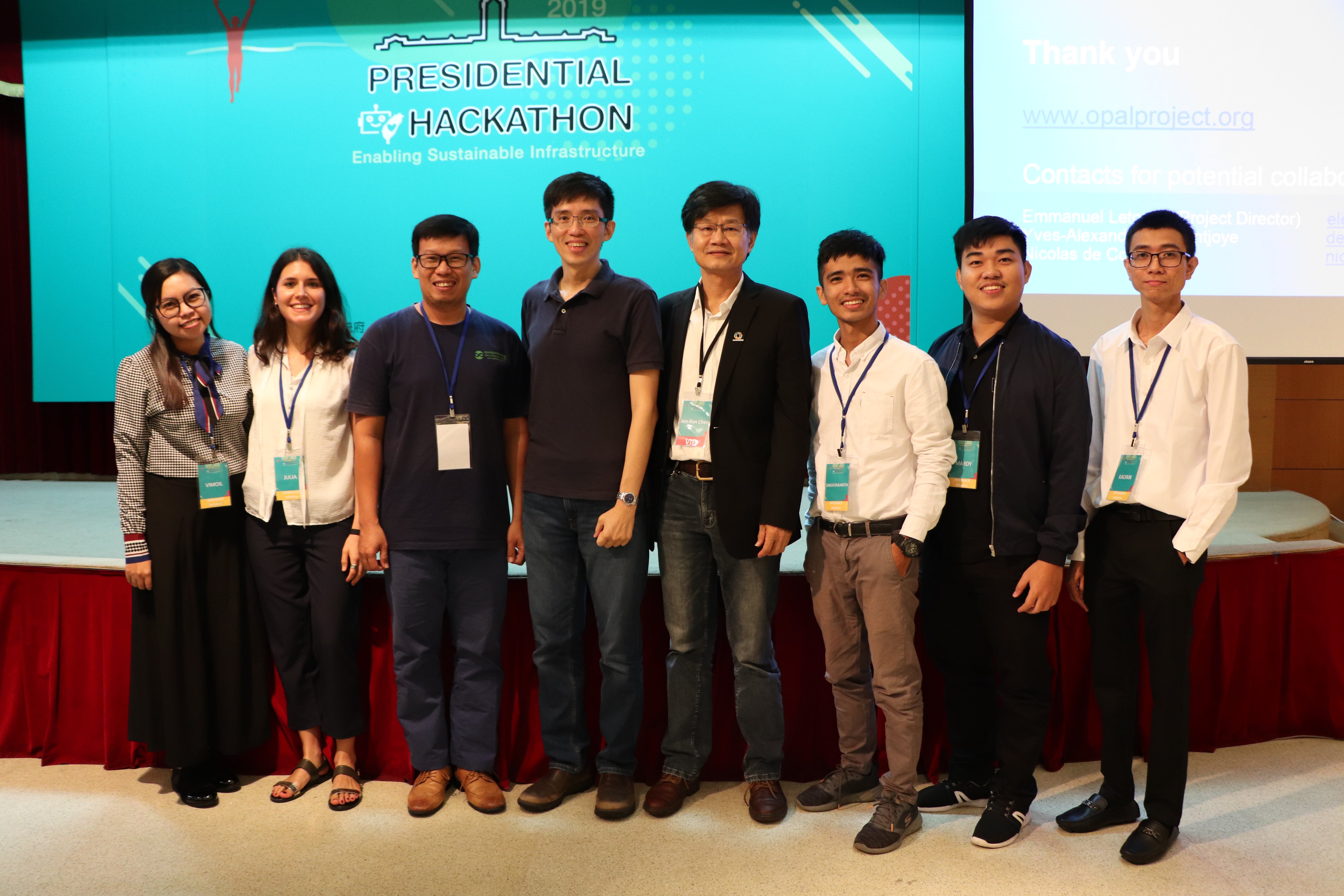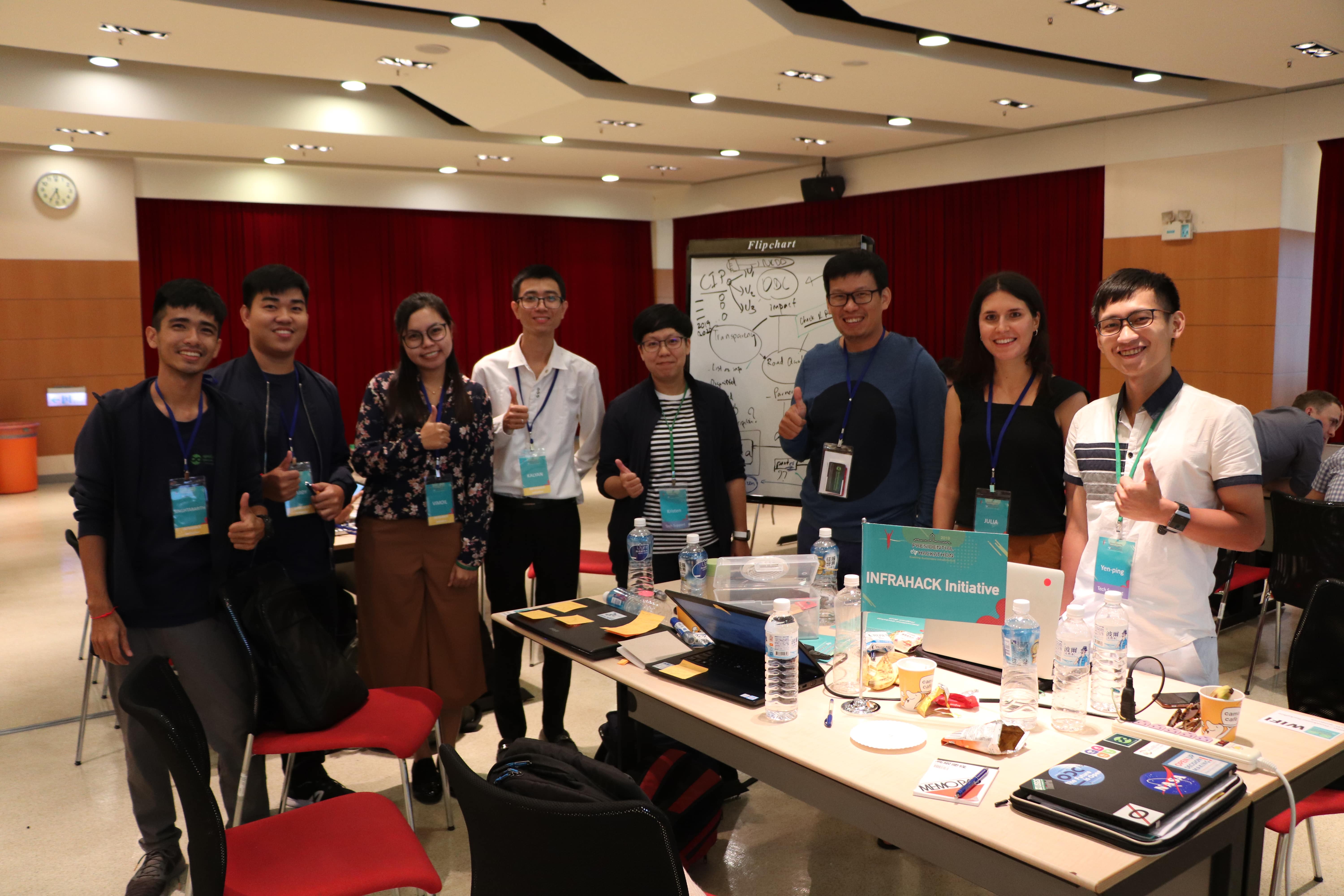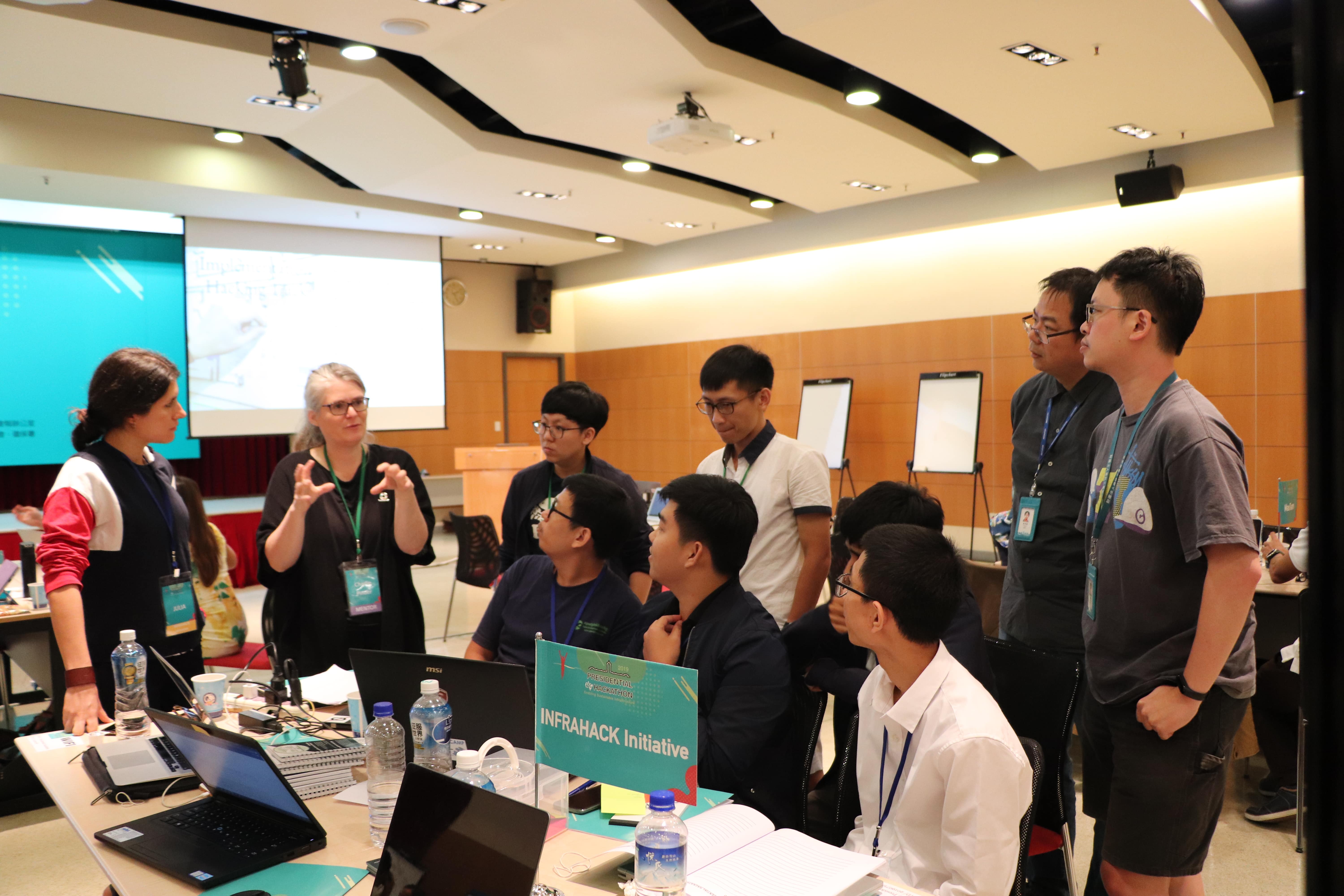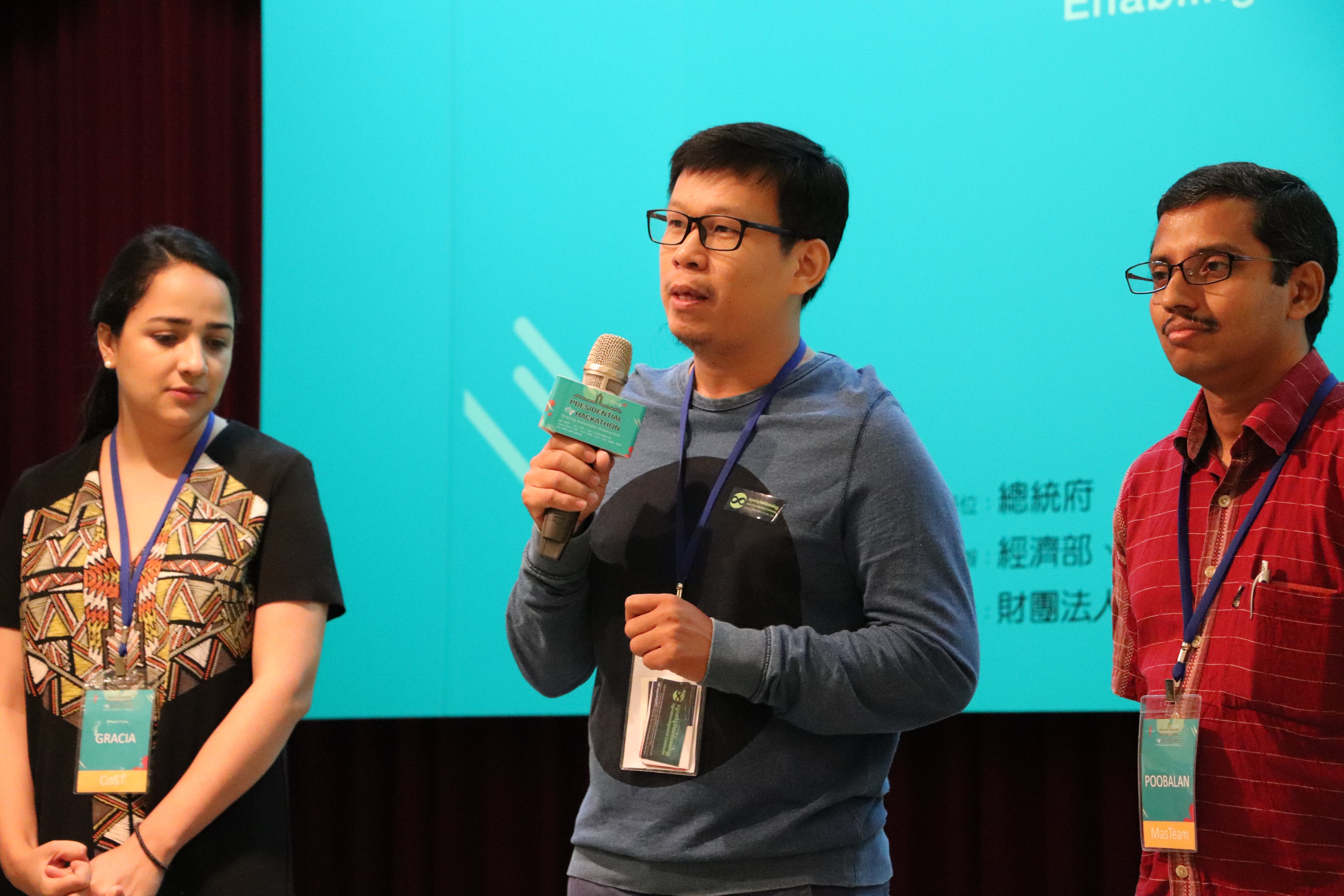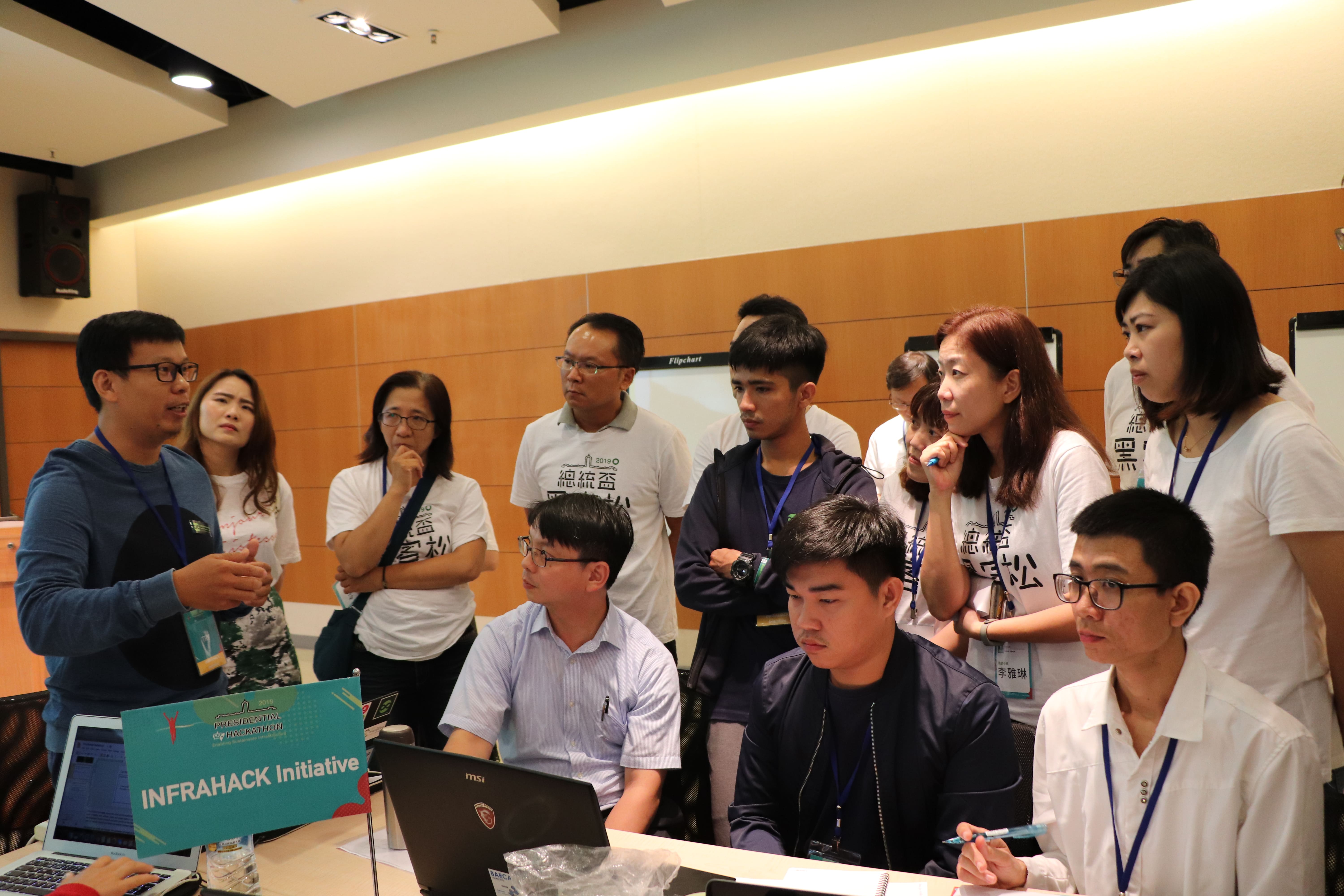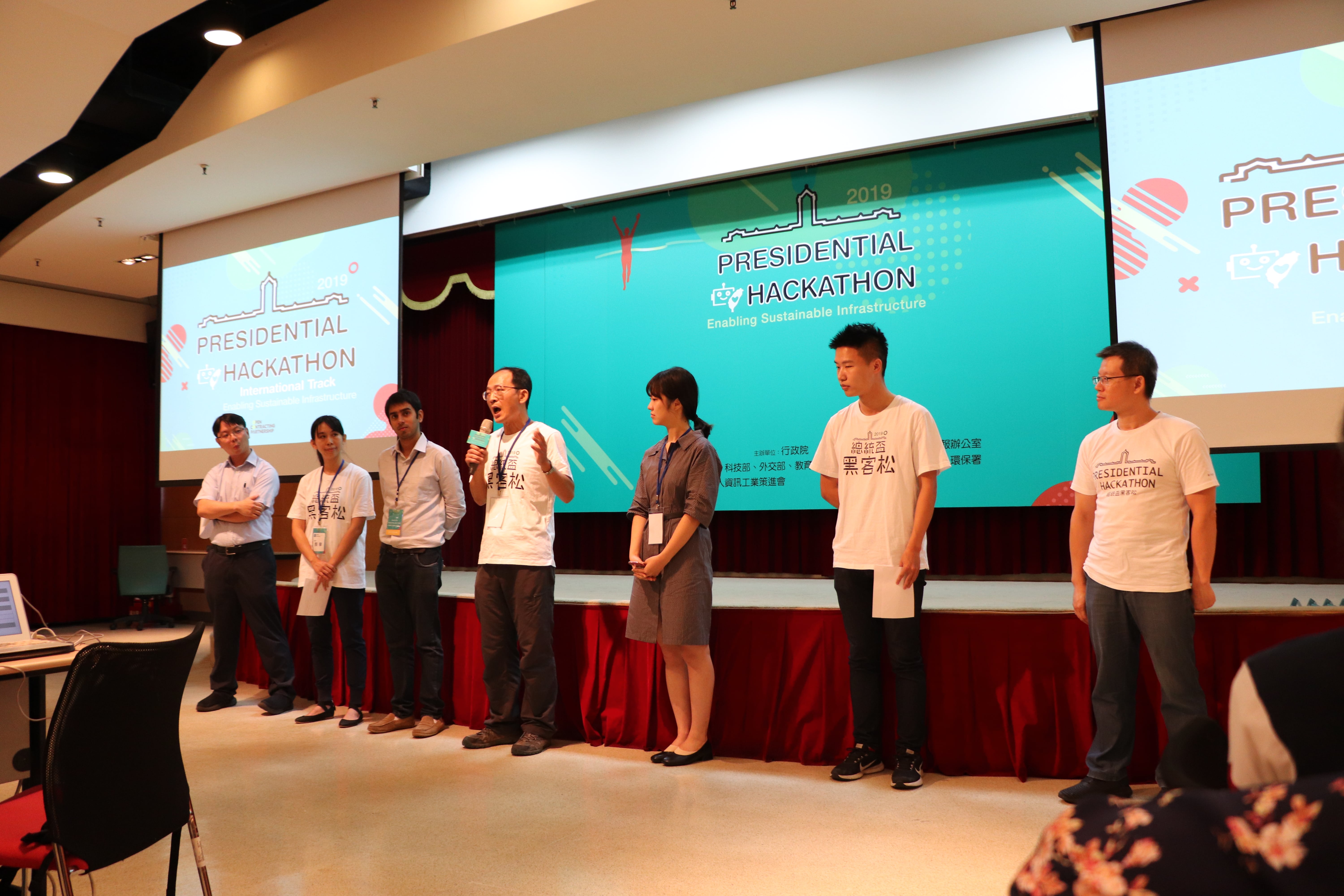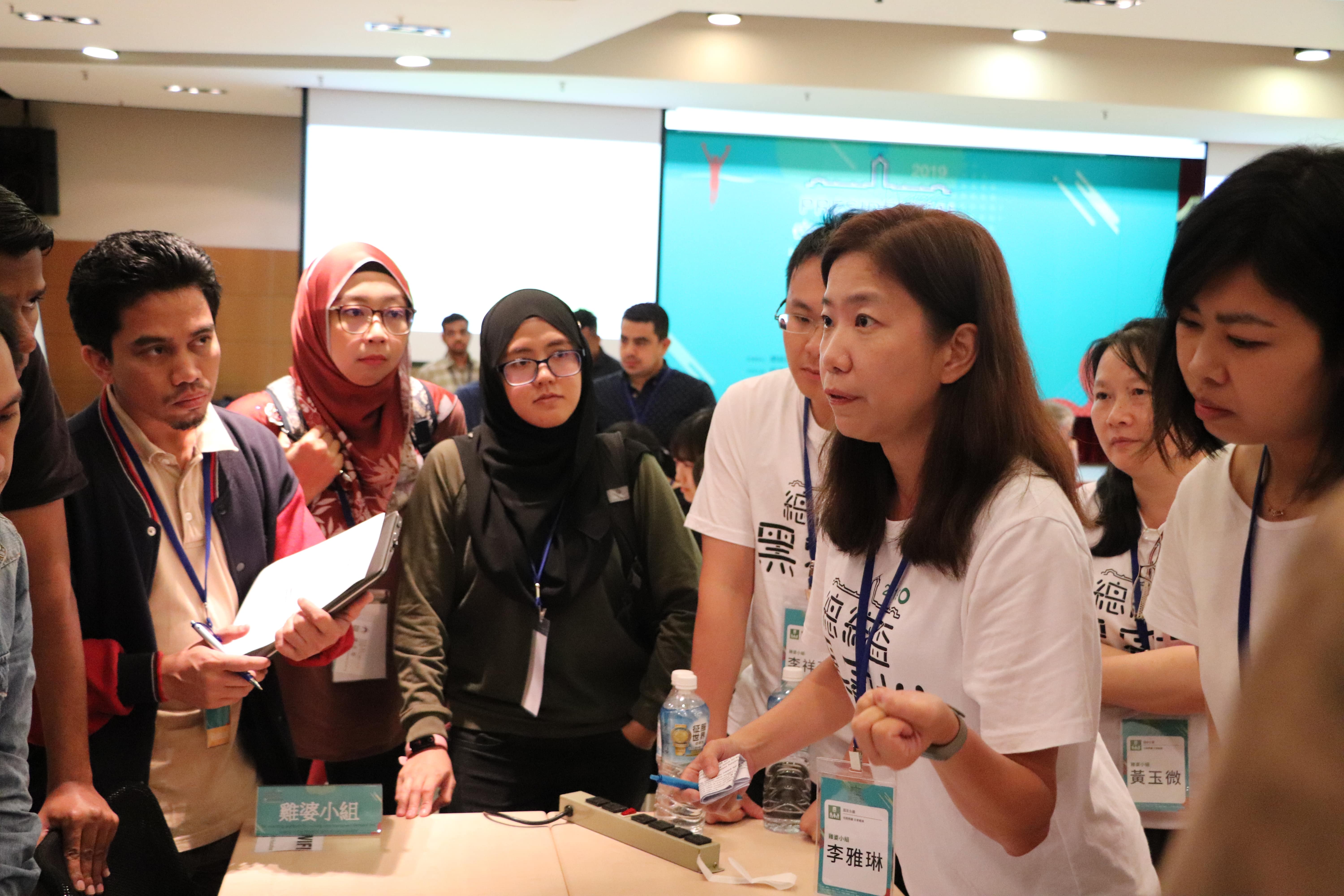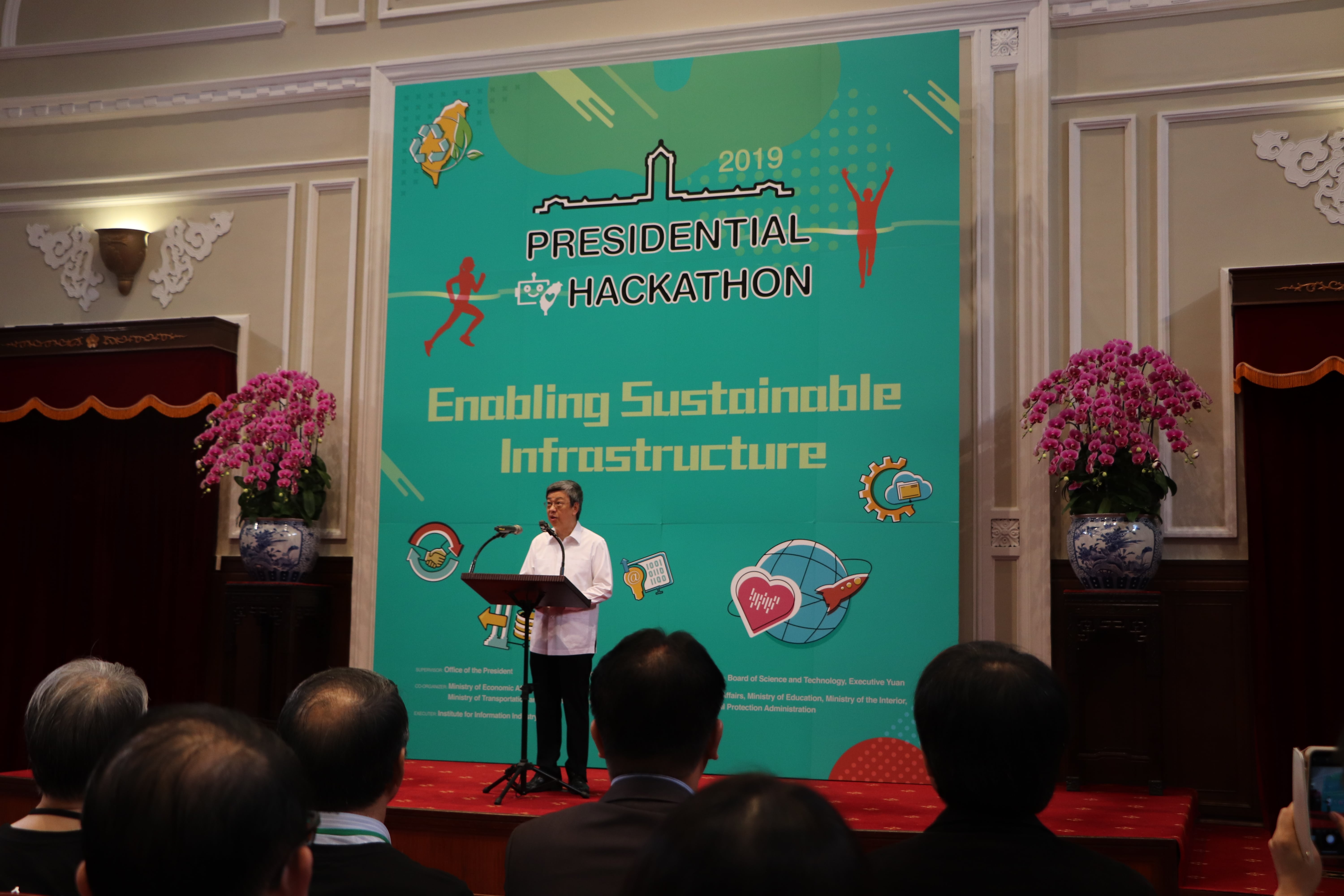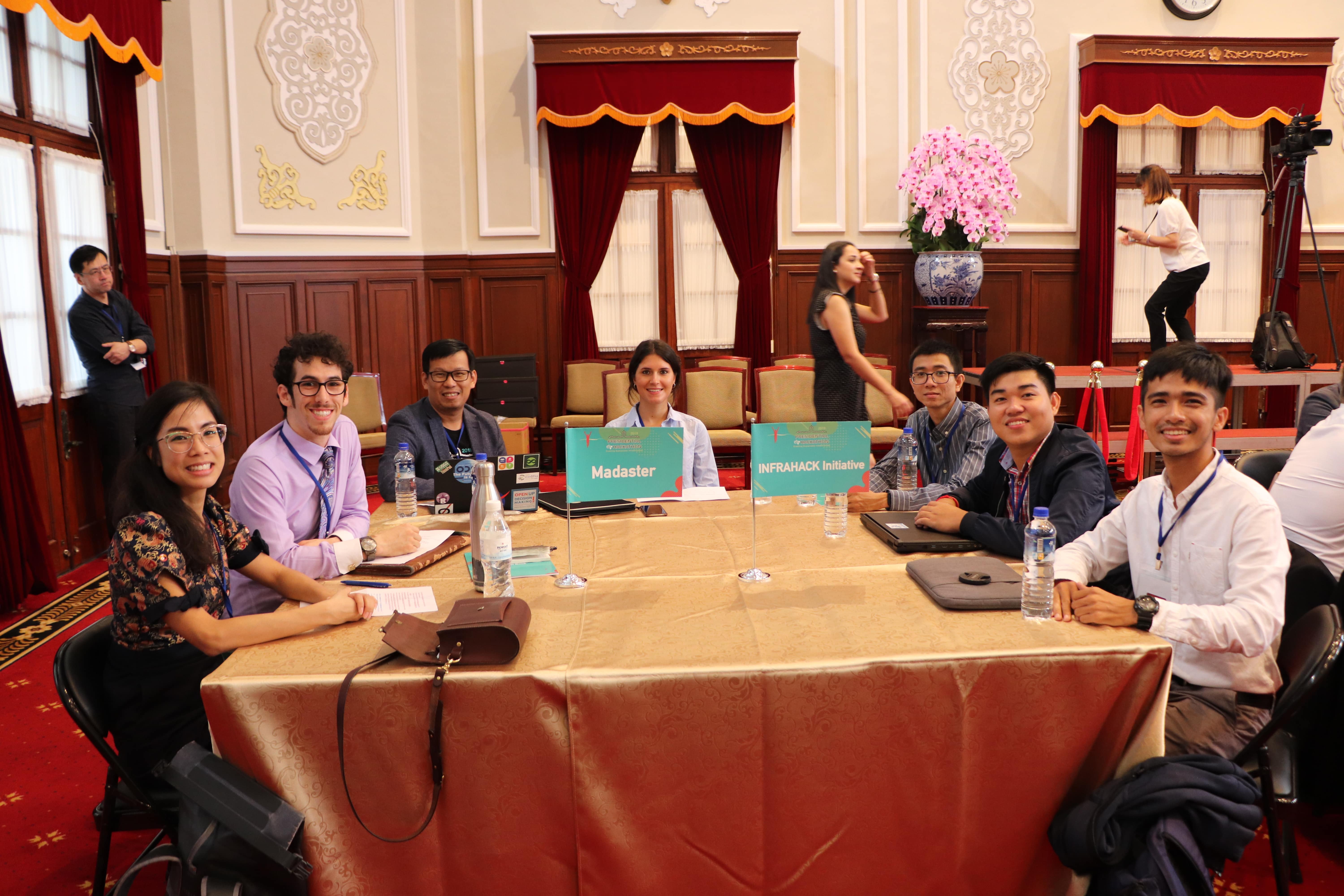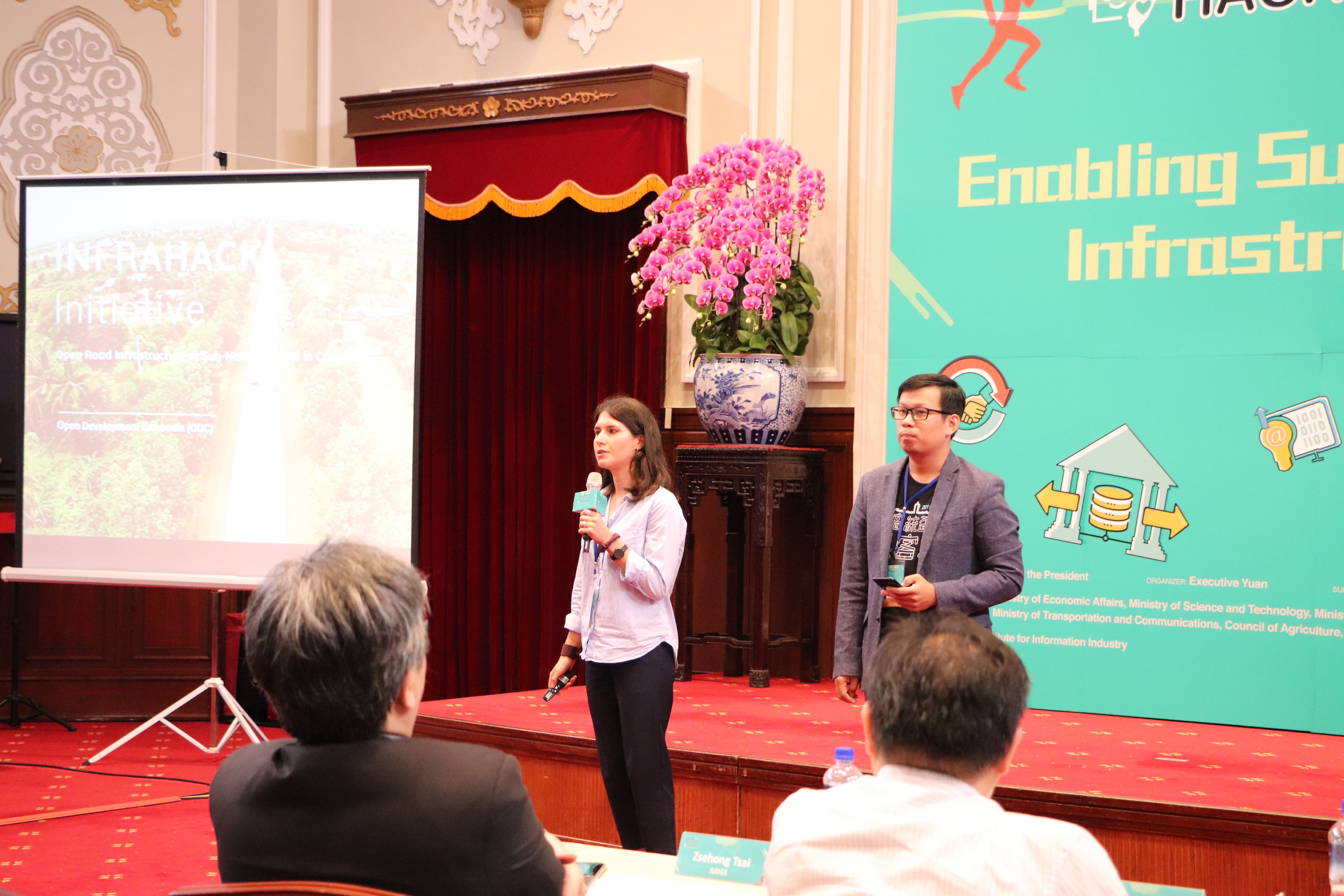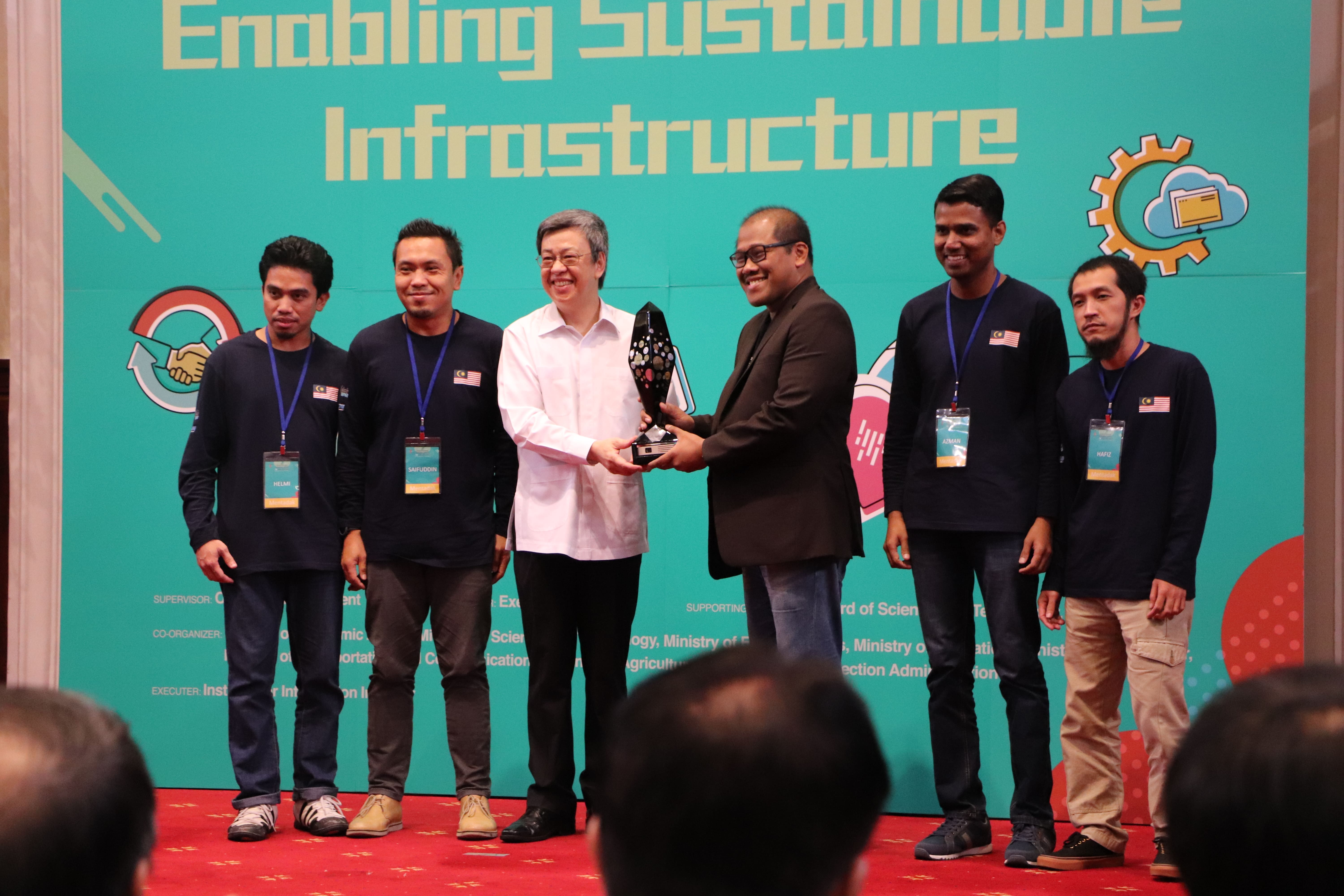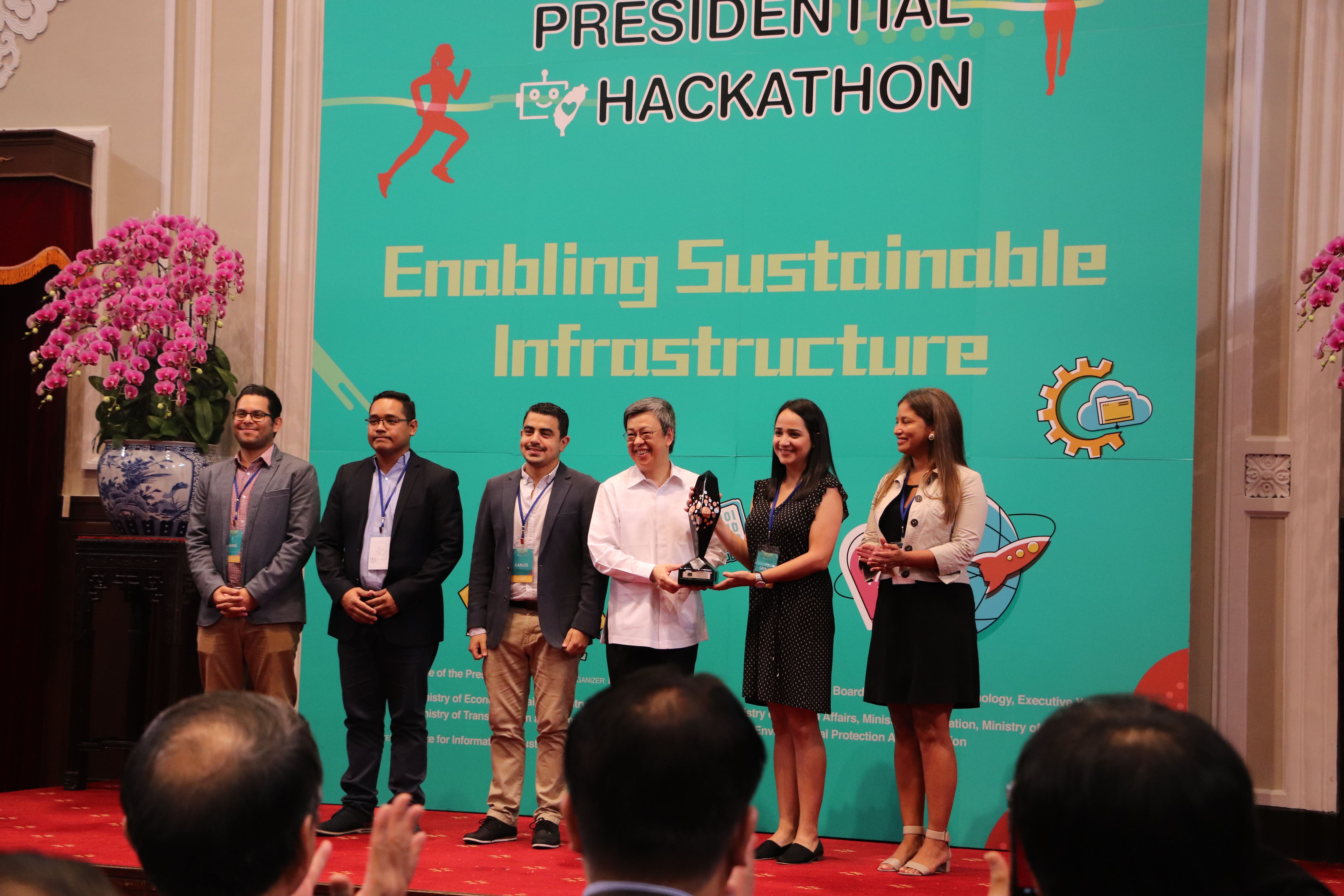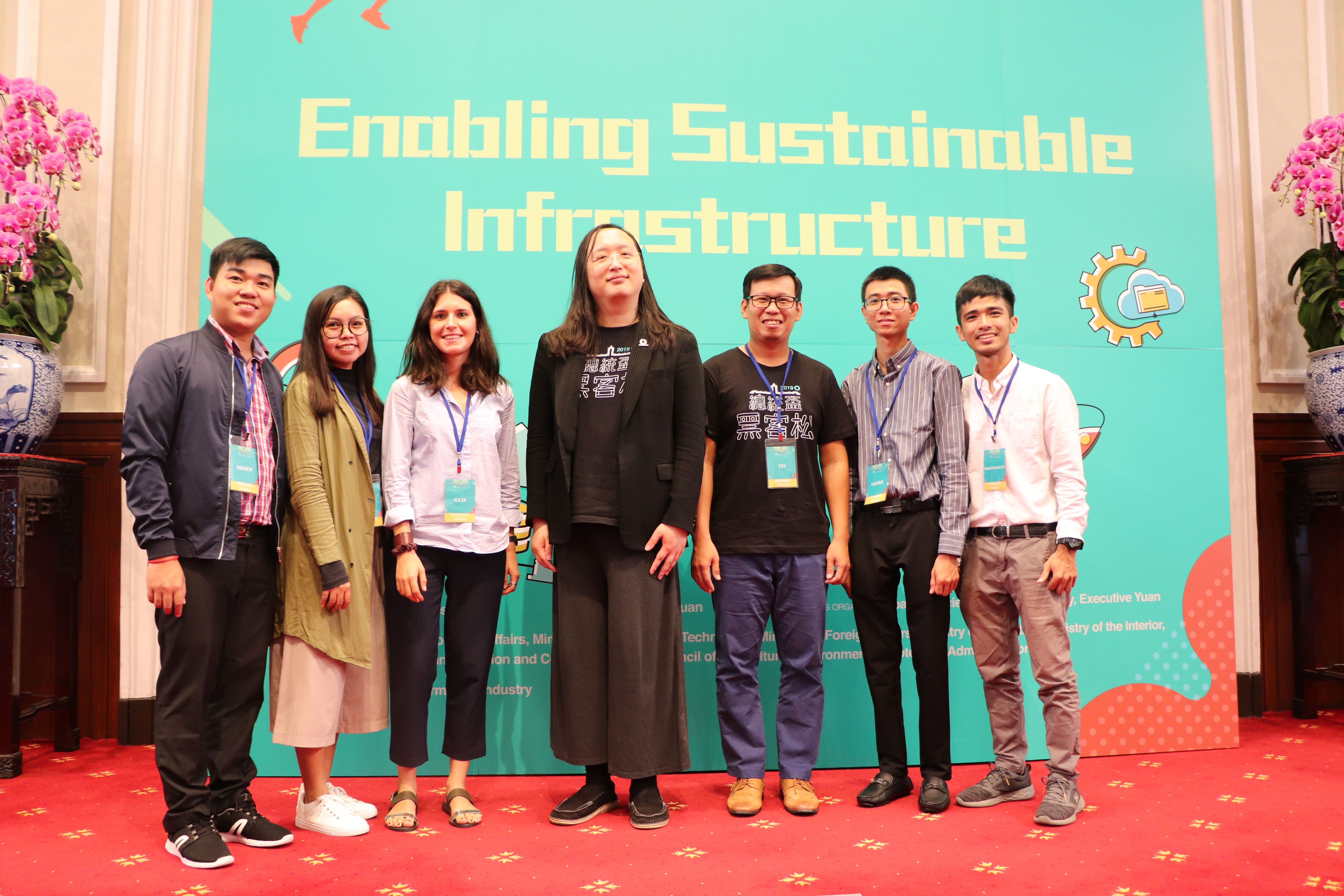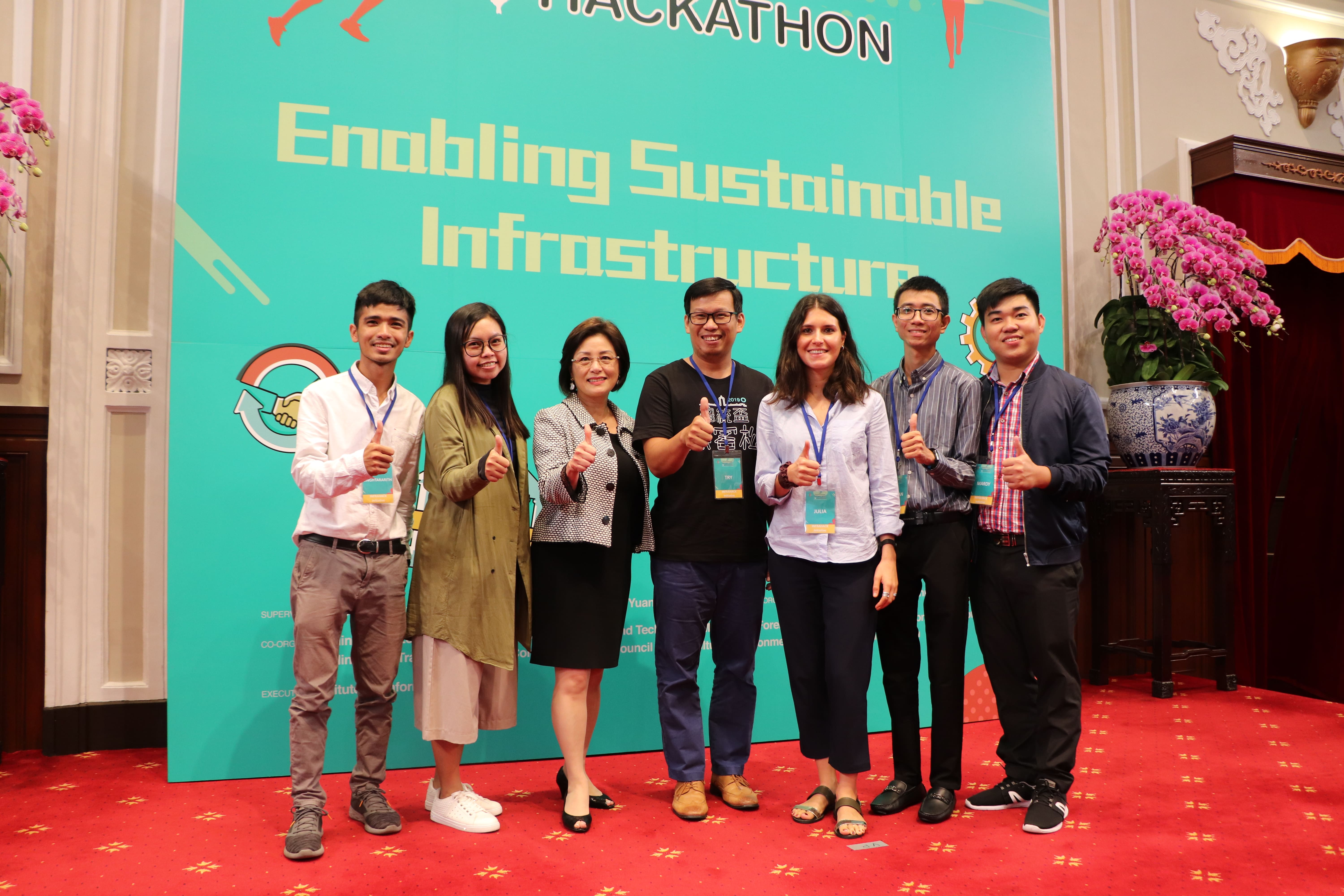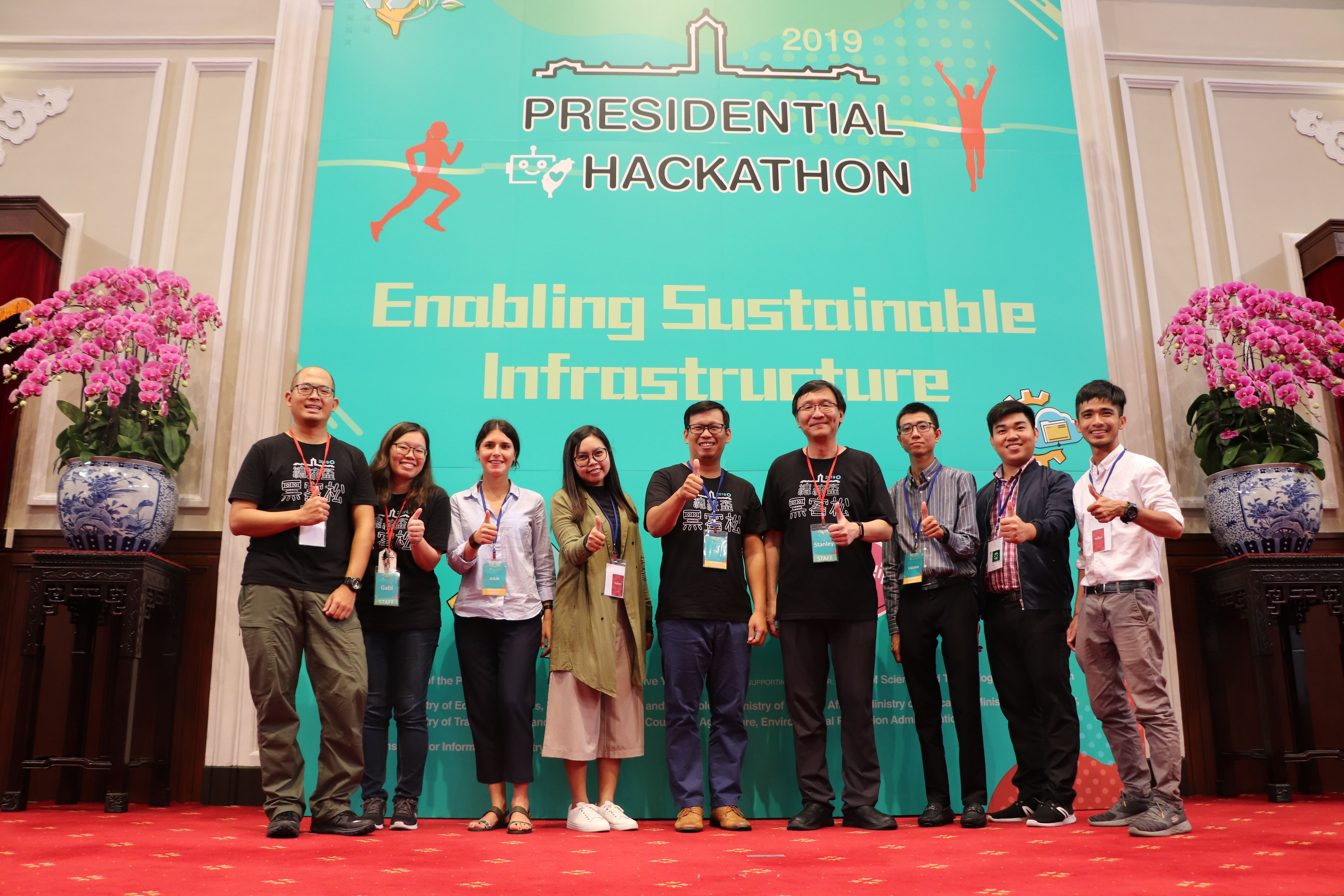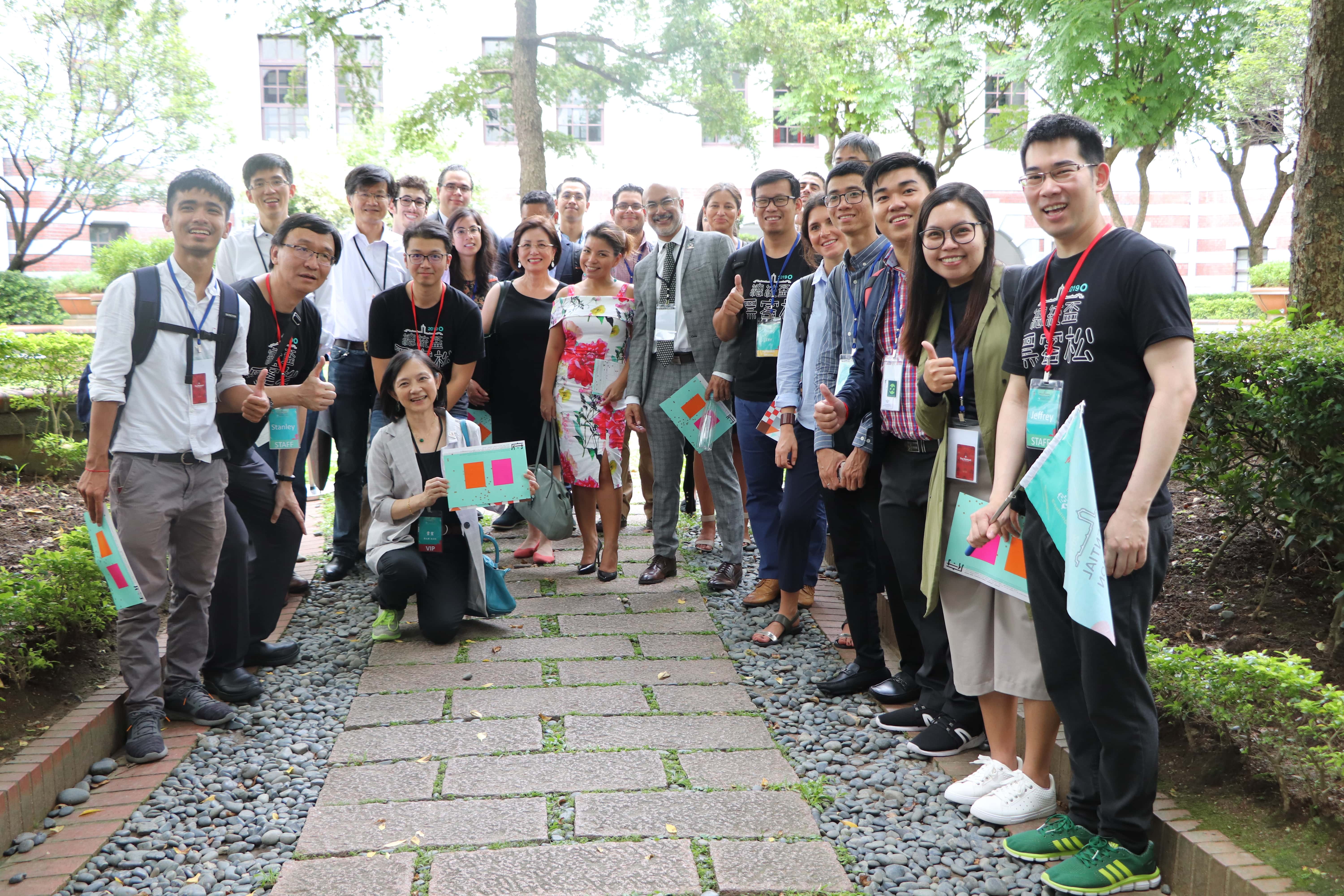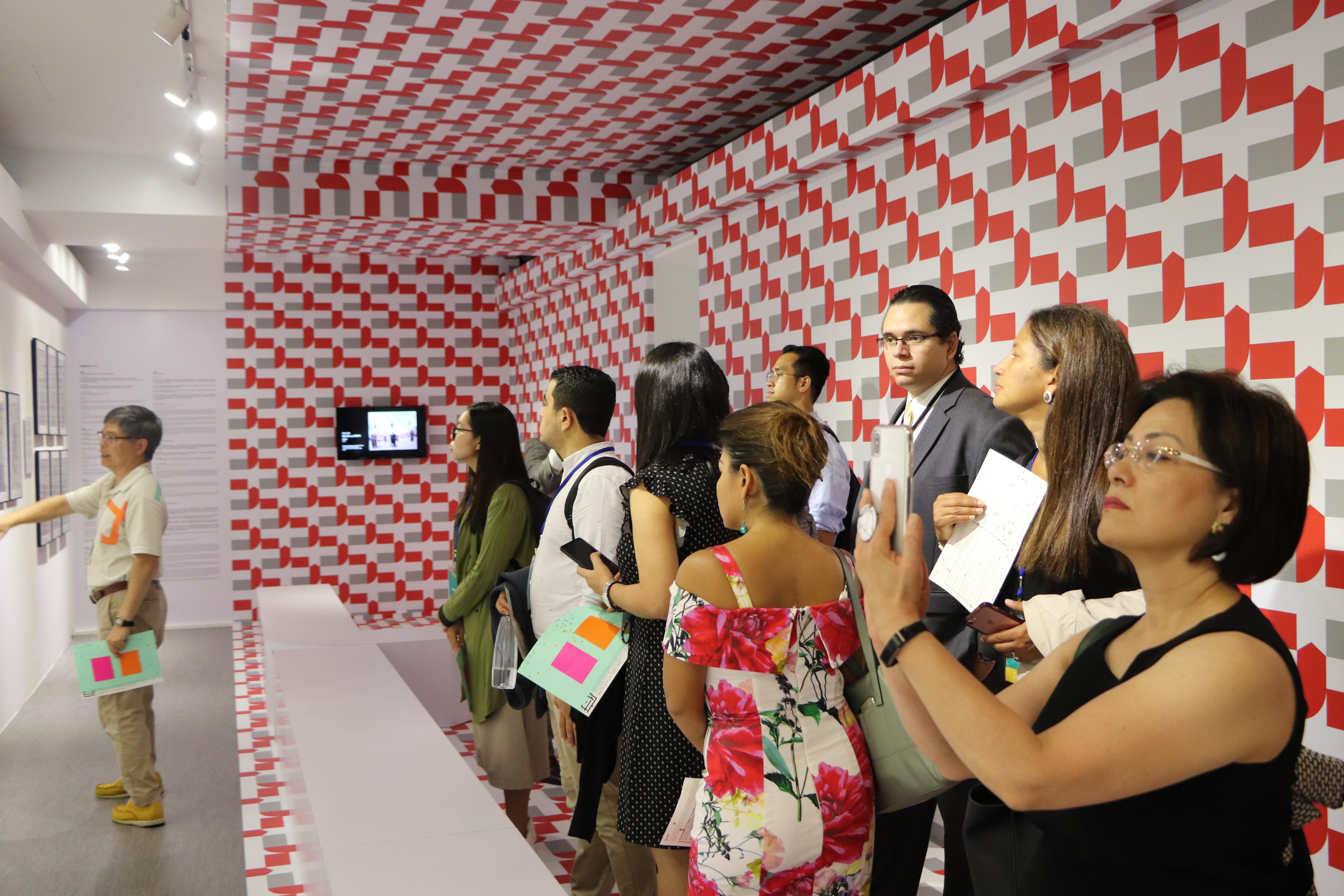Presidential Hackathon 2019 in Taiwan
From 18 to 21 July, Open Development (ODC) team has been attending the Presidential Hackathon 2019 in Taipei, Taiwan. The Presidential Hackathon is an initiative designed by the Taiwanese government to emphasize the importance of open-source, open data, and related best practices which can be applied to address the needs of the country through social innovations and economic development. 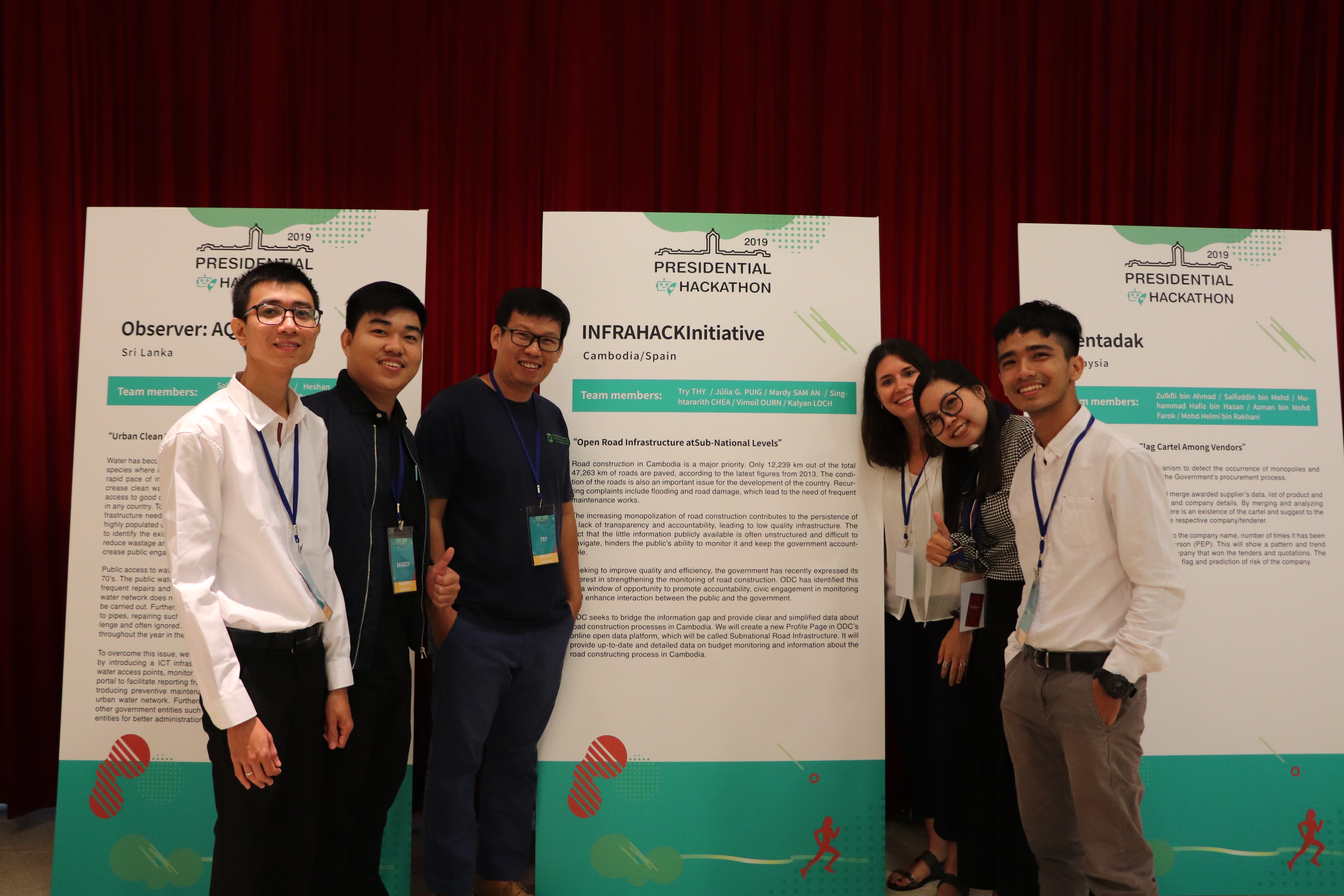
ODC is one among the six outstanding teams who have been shortlisted to participate and compete in the Presidential Hackathon 2019. The six teams consist of open data and tech experts from different countries such as Australia, Netherlands, France, the United States of America, Malaysia, Honduras, Sri Lanka, and Cambodia. With the theme: Enabling Sustainable Infrastructure, each team has come up with unique and outstanding innovation including: monitoring construction wastes platform, analysing infrastructure advisory service, open road infrastructure platform, evaluating tool to flag cartel among vendors, identifying suitable location for school and healthcare facilities tool, and evaluating the impact of infrastructure tool. 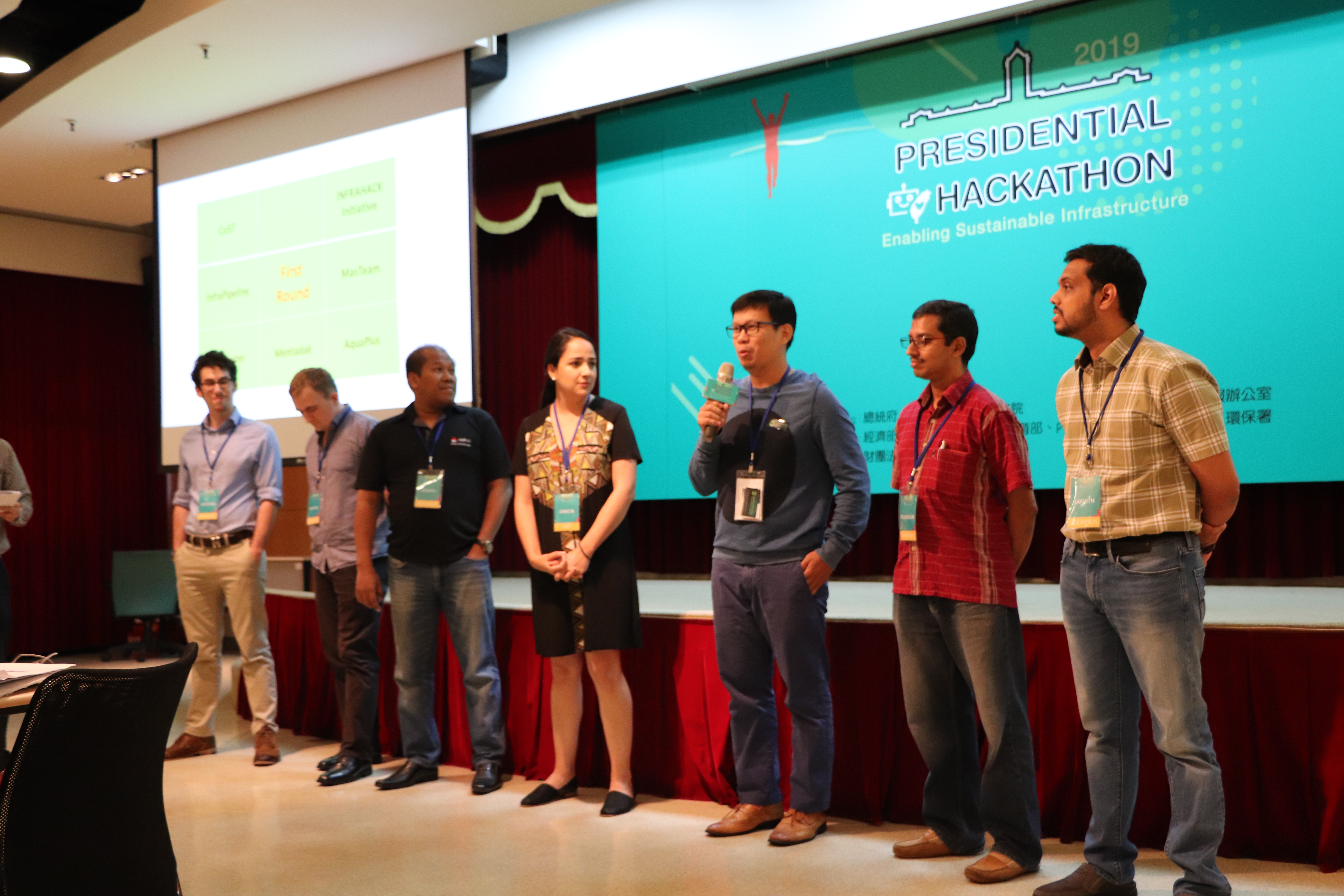
During the four days intensive program, the teams have been working on their projects, including conceptual design, project design, and prototype to prepare for the final pitching. There were also sharing sessions from international open data experts who presented on infrastructure problems, sustainable infrastructure, and introducing international open contracting standard (OCDS/OC4IDS). Besides the sharing session from international experts, the teams also had a peer learning session with the outstanding teams from local (Taiwanese) tracks in the Presidential Hackathon 2019. As this hackathon aims to accelerate the optimization of public services and stimulate inclusive social and economic growth for all people, the Open Contracting Data Standard (OCDS) and Open Contracting for Infrastructure Data Standard (OC4IDS) were introduced as proposed solution for building better and sustainable infrastructure; from infrastructure monitoring tools to safeguarding projects against corruption and enable or enhance the likelihood of achieving performance targets.
On the final day, the teams were invited to present their innovative projects in the Taiwanese presidential office. It was an honor to have the vice president of Taiwan, Mr. Chen Chien-jen to give a welcome remark. Vice president Chen said this hackathon, with the theme: Enabling Sustainable Infrastructure, is in line with government efforts to exchange ideas and innovation between Taiwan and overseas information and communication technology experts. After the final pitching, ODC team was honored to be one of the runner-up teams for our project on open road infrastructure at sub-national levels in this international track hackathon. There are many key takeaways for the team to improve and continue to develop the platform. ODC executive director, Mr. Thy Try, said that this event is very crucial for the team to explore and learn more about the open contracting data standard and open government platform from the international communities and the Taiwanese government. Moreover, the team also got the opportunity to explore the possibilities to design and enhance our platform as well. The presidential hackathon 2019 ended with a tour inside the presidential office. The teams were introduced to Taiwanese country’s policies, culture, tradition and historical events.
About ODC’s open road infrastructure at sub-national levels platform
Road construction in Cambodia is a major priority. Only 12,239 km out of the total 47,263 km of roads are paved, according to the latest figures from 2013. The condition of the roads is also an important issue for the development of the country. Recurring complaints include flooding and road damage, which lead to the need for frequent maintenance works. The increasing monopolization of road construction contributes to the persistence of a lack of transparency and accountability, leading to low-quality infrastructure. The fact that the little information publicly available is often unstructured and challenging to navigate hinders the public’s ability to monitor it and keep the government accountable.
Seeking to improve quality and efficiency, the government has recently expressed its interest in strengthening the monitoring of road construction. ODC has identified this as a window of opportunity to promote accountability, civic engagement in monitoring and enhance interaction between the public and the government. ODC seeks to bridge the information gap and provide clear and simplified data about road construction processes in Cambodia. We will create a new Profile Page in ODC’s online open data platform, which will be called Sub-national Road Infrastructure. It will provide up-to-date and detailed data on budget monitoring and information about the road constructing process in Cambodia. As we want to make it user-friendly and accessible for everyone, we will present the story through data visualization tools and we will comply with the OC4IDS data standards.
First, ODC will add the generated map layers to the platform’s “Interactive map” where the user will be able to overlay the new layers with other existing layers of different topics area to tell a various meaningful story related to sub-regional road infrastructure in Cambodia. To present dis-aggregated information, various data visualization will be added to a new page to allow the user to see the overview of the topic in Cambodia context and to make a comparison with other parameters. Zooming in to project level, the user can be able to view the details of a specific project where they accumulate details of the project in identification stage and bidding announcement and process. Moreover, the user can also access the details of the contract of the project to understand the actual output, timeframe and cost of the project implementation.
With the information and the data that are freely available for everyone to access and use, ODC believes that disclosing such information will increase civic engagement, public demands for greater transparency and will enhance fairer competition between constructors that will result into higher-quality roads in Cambodia.
